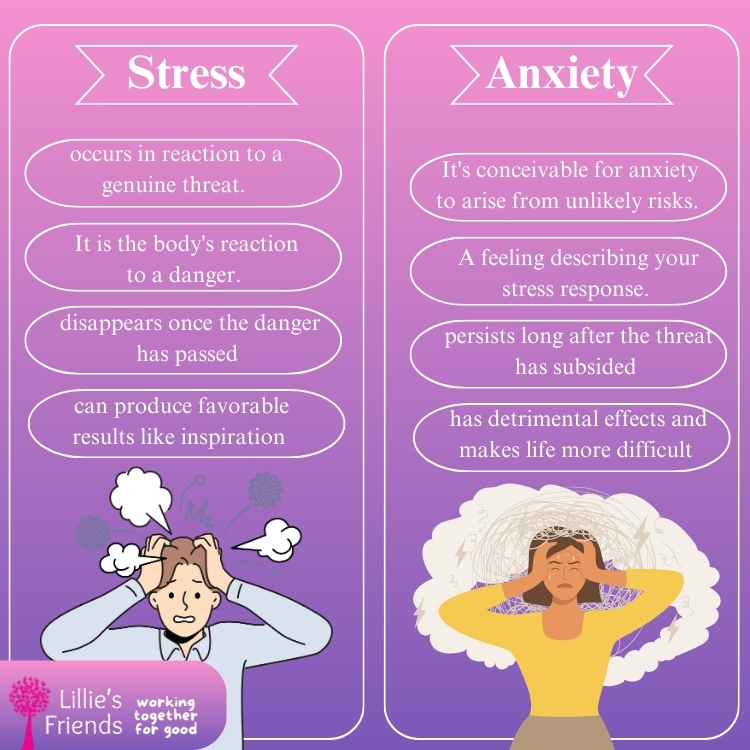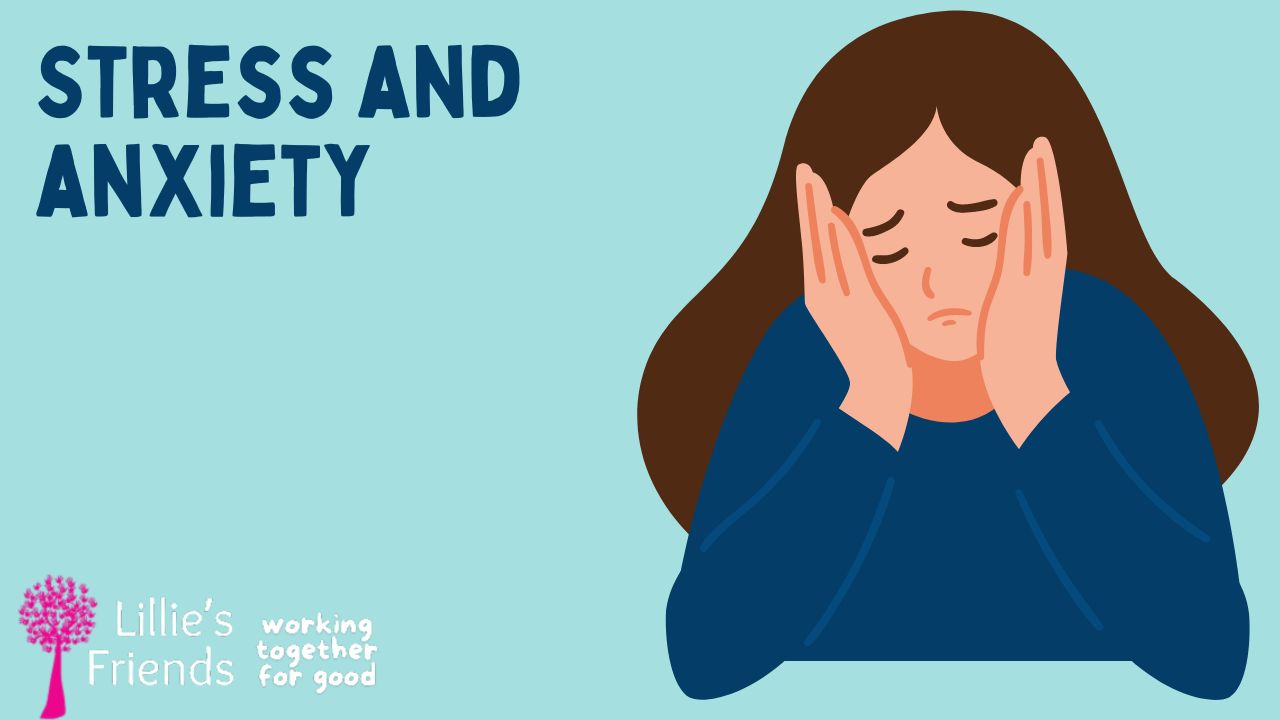The majority of people switch between the labels stress and anxiety ↗ . This is because there are several symptoms and even identical causes between the two. But are worry and stress the same thing? And does anxiety result from stress? We have the answers to these questions, which you could be asking yourself as well.
These two conditions differ greatly from one another, despite their many similarities. Let’s define each phrase first in order to better comprehend the distinction between stress and anxiety.
Stress: What Is It?
Stress is the body’s psychological reaction to outside dangers, attacks, or difficulties. It can be a one-time issue like having too much work to do. or a recurring circumstance, like managing a chronic illness. Everyone goes through periods of stress, albeit to varying degrees. Among the various forms of stress are:
- Acute stress. Stress is a transient emotion that arises when you are in imminent danger. An instance would be if you just avoided a car crash.
- Extended periods of stress. It is long-lasting stress brought on by an ongoing difficulty, such a challenging job or a chronic sickness.
- Stress related to trauma. It stems from traumatic life events like physical abuse or natural calamities like tornadoes.
The fight-or-flight hormone, adrenaline, is released by the body in response to stress and provides you with the energy to confront danger. This hormone causes perspiration by raising your heart rate. Furthermore, the body releases cortisol, a stress hormone ↗. Cortisol, among other things, causes the liver to create more glucose, which provides you with more energy to run away or fight.
Stress may be beneficial at certain times. For example, studying more increases the likelihood that you will pass an upcoming examination if you are anxious about it. Nevertheless, long-term stress might be detrimental. Fatigue, mental and emotional problems, and bodily pain (such as headaches and tense muscles) might result from it.
Anxiety: What Is It?
Fear or worry about an imagined threat is what defines anxiety. Anxious people experience uneasiness when they look forward to potentially unpleasant or overwhelming events. Even though anxiety is common, it can become excessive. Anxiety can be clinical or chronic, just like stress. A person suffers excessive worry at this point, out of proportion to the apparent threat.
This degree of anxiety is felt by about 31.1% of American adults ↗ at some point in their lives. Anxiety-inducing threats aren’t always genuine. Furthermore, the worry may not go away even after the threat has passed. It can occasionally develop into an anxiety disorder with symptoms like agitation, restlessness, anxiousness, and, in extreme situations, panic attacks.
How Do Stress and Anxiety Differ From One Another?
How can you tell if you’re anxious or stressed out? Understanding the brain mechanisms ↗ that underlie stress and anxiety and how they contribute to symptom expression is necessary to distinguish between the two. It can be beneficial to know the particular symptoms of each. However, keep in mind that stress can lead to anxiety, so some symptoms may be comparable. The key distinctions between stress and anxiety ↗ are outlined below.
- When a genuine threat is present or likely to materialize, stress arises. Anxiety may arise from perceived dangers whose manifestation is unpredictable.
- Anxiety is an internal emotion derived from how you handle stress, whereas stress is the body’s reaction to dangers from the outside.
- Anxiety persists even after the threat has subsided, while stress does not.
- There are benefits to stress as well, such as inspiring you to put in more effort to reach your deadline. Anxiety has detrimental effects that make life more difficult.

Anxiety vs. Stress Treatment
Most people are able to control their stress and anxiety without medical assistance. However, on occasion, these ailments may be so severe and persistent as to interfere with day-to-day activities. At that point, they turn into mental illnesses, which can be difficult to manage on one’s own without expert assistance.
Stress and anxiety are treated ↗ mostly in the same ways, with medication and psychotherapy. Drugs that treat anxiety and depression, such as antidepressants, can offer temporary relief. However, talk therapy or psychotherapy can help you manage the problems over time.
Massage can ease stiffness and lessen pain in the muscles if stress is the cause of the tension. It can help decrease blood pressure and enhance circulation. In addition to receiving medical attention, you can experiment on your own with coping techniques. Among them are:
- To reduce anxiety, take a few minutes to practice deep breathing.
- Taking part in enjoyable activities and making an effort to stop worrying about your troubles and live in the present.
- Expressing your emotions to a reliable individual.
- Regular exercise to release endorphins, a chemical in the brain that elevates happiness.
- Leading a balanced life that includes set hours for work, relaxation, and social interaction.
- Recording your symptoms, identifying triggers, and prioritizing your tasks in a journal.
In summary
Because the symptoms and causes of anxiety and stress are similar, most individuals confuse the two. The main distinction between the two is that stress is a very sensible bodily reaction to threats from the outside world. And your response to stress is anxiety. It is founded in perceived threats and frequently results in unjustified or exaggerated anxiety.
Seek professional assistance if your stress or anxiety interferes with your ability to go about your regular life. If treatment is not received, problems such as depression and other mental illnesses may arise. Counseling is the best treatment for stress and anxiety because it has no negative side effects and long-term benefits. Nonetheless, medicines might help to offer immediate relief if there is physical pain or strong mental problems.











